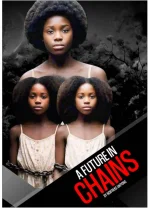The story takes place in Ayam, a fictional village. It shows how old ways can clash with people's need for freedom.
Mr. Ekpendo, a rich farmer, talks to his sons Effiong and Ukafia about their dreams. He wants them to get an education because he never went to school. His older son Effiong becomes a doctor. His success brings new ideas to the old village. But Effiong dies in a car crash. This leaves his wife, Nkowo, and their daughters, Udiomka and Udiomke, in danger.
The younger son, Ukafia, stays a farmer like his dad. He wants his dead brother's things and tries to marry Nkowo. The village leaders say Nkowo must marry Ukafia—this is their old way—but Nkowo says no. She takes her daughters and leaves the village.
The village priest tells Nkowo she will die within a year. But she lives on. Her faith in God helps her stay strong. She works hard to give her daughters good lives away from the old rules.
Ukafia shows how people can use old ways for selfish reasons. He wants power and money, but his greed leads to his downfall. The village priest tries to scare people into following the old ways, but Nkowo proves him wrong by living past his curse.
The book uses simple words to tell its story. The writer clearly shows us village and city life. We see how hard it is to leave behind what you know, but we also see how brave people can make better lives.
Nkowo's story makes readers think about rules in their own lives. It shows that one person's courage can break old chains. Her choice to leave helps her daughters grow up free from unfair rules.
The book stays in readers' minds because it shows how faith and inner strength can beat fear. Nkowo proves that people can make their paths, even when others say they can't.
Mr. Ekpendo, a rich farmer, talks to his sons Effiong and Ukafia about their dreams. He wants them to get an education because he never went to school. His older son Effiong becomes a doctor. His success brings new ideas to the old village. But Effiong dies in a car crash. This leaves his wife, Nkowo, and their daughters, Udiomka and Udiomke, in danger.
The younger son, Ukafia, stays a farmer like his dad. He wants his dead brother's things and tries to marry Nkowo. The village leaders say Nkowo must marry Ukafia—this is their old way—but Nkowo says no. She takes her daughters and leaves the village.
The village priest tells Nkowo she will die within a year. But she lives on. Her faith in God helps her stay strong. She works hard to give her daughters good lives away from the old rules.
Ukafia shows how people can use old ways for selfish reasons. He wants power and money, but his greed leads to his downfall. The village priest tries to scare people into following the old ways, but Nkowo proves him wrong by living past his curse.
The book uses simple words to tell its story. The writer clearly shows us village and city life. We see how hard it is to leave behind what you know, but we also see how brave people can make better lives.
Nkowo's story makes readers think about rules in their own lives. It shows that one person's courage can break old chains. Her choice to leave helps her daughters grow up free from unfair rules.
The book stays in readers' minds because it shows how faith and inner strength can beat fear. Nkowo proves that people can make their paths, even when others say they can't.












